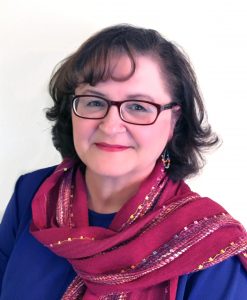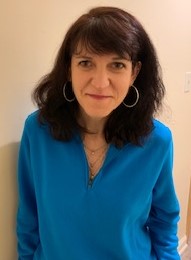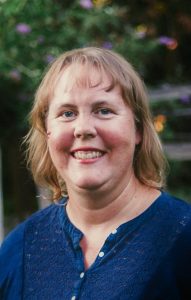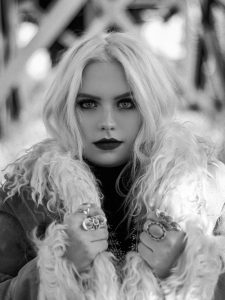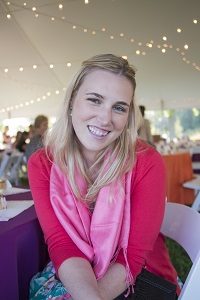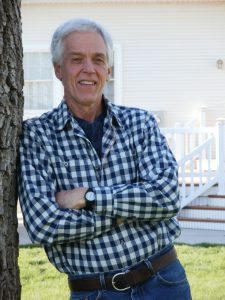
Mysteries of the Universe
The premonition hits as I walk down Park Street to the university. One foot up in the air and bamm! Knocks me back like a punch in the gut or a mysterious pain in the chest. A premo that sends a chill down my spine despite the warm spring morning. I try to shake it off. I have things to do.
Crows squawk in the maples and oaks, a holy racket. In the distance the university band rehearses for the halftime show of the first home football game four months away, another holy racket. The smell of fresh baked bread and donuts drifts from Sweet Melissa’s Bakery on Lake Avenue.
I try to wash the ugly inkling, the déjà before the vu, out of my mind by concentrating on the cottonwood fluff floating in the air, the noisy crows scolding me, the fat dandelion blossoms blanketing the lawn. A large limb from a sycamore tree has fallen across the sidewalk in front of the physics lab. The dew-covered grass in the shade of the red bricks and ivy of Rodman Hall needs mowed. Cleaning up downed limbs, mowing, trimming, mulching flowerbeds, seeding the muddy areas around the greenhouse. Maintenance stuff. My job. Need to get everything looking tiptop for graduation.
The premonition gnaws at the sunny day. It’s a dark thundercloud threat just over the horizon, lightning flashing, thunder booming. I hope it’s a false warning, a fake forecast.
I’ve had a few, both good and bad, fake and not. Take the one when Sloane and I were camping in the Boundary Waters, our first date, although we didn’t think of it as a date. We’d known each other three weeks. Morning fog blanketed the campsite so thick we couldn’t see the water a few feet beyond our beached canoe. Dew dripped from the needles of the pine trees, landed on the rocks with little plops. I closed up the camp stove, and we took our cups of coffee inside the tent, sat on our sleeping bags with Yogi hunkered down bear-like between us. “A moose,” I mumbled a few minutes later, just as the coffee was beginning to cool.
“What?” Sloane asked.
“Outside the tent,” I said. I hadn’t heard a thing, no hooves crunching on pinecones or sloshing through water, no chomping of aspen, no snorting. Pure premonition.
Sloane gave me her Ph.D. in theoretical physics look. I couldn’t even recite the title of her doctoral thesis, which had something to do, she explained, with cosmic rays called Oh-My-God particles. I had no clue what Oh-My-God particles were despite her attempts to explain, but I took comfort in her admitting no one else knew much about them either. Sloane says space-time is curved by gravity and that virtual particles pop in and out of existence, but she doesn’t buy into premonitions, prophesies, omens, or signs.
Holding onto my cup, I crawled to the tent flap and flipped it aside. Ten feet away and staring at our red canoe was a giant moose although, I guess, all adult moose are giants. I touched my finger to my lips and pointed. Yogi, curious but cautious, watched, sniffed the air. No growl or bark. The moose grazed around our campsite then stepped into the lake and urinated, which sounded like a bucket of water being dumped or a waterfall dropping from a respectable height. “Premonition,” I said a bit smugly.
Sloane shook her head.
I tried throwing a little of her theoretical physics stuff at her. “Didn’t you tell me yesterday as we were paddling across the inlet that quantum things in the future can influence the present? Maybe the future moose in front of our tent signaled it would be there.”
Sloane smirked. “Future events influencing the present is only true in the quantum world,” she said.
Sloane is driven in an indoors/office/journal reading sort of way. Although she had traveled to conferences in several countries and a dozen major cities, this was her first camping trip. I wanted to ask how one thing could be true in her quantum world and not ours, but the moose had moved on, and she was packing up, preparing to move out.
Later that day, the moose day, two young women wearing nothing but hats paddled by us, which has nothing to do with this story.
“Morning,” I said, doing my best not to focus on their as yet un-tanned breasts.
“Morning,” they answered.
After they’d rounded a bend behind us, Sloane, sitting in the bow, turned, cocked her eyebrow. “Well? No comment?” She spoke softly as sounds carry over water, and she didn’t want the topless paddlers to hear.
“I’d worry about mosquitoes and sunburn,” I said, “but it’s a free world.”
Sloane puzzled over my answer for a second. “In the spirit of sisterhood,” she said, and then facing forward, pulled off her sweatshirt and bra.
I stared at her back, the way it narrowed near her waist, the smooth skin, the soft bumps of her spine. “Oh, look,” I said, pointing at an island behind us, tricking her into turning around. “Thought I saw a bear.”
She squinted at the island, and then at me. “Yeah, right,” she said, daring me to stare.
A bare-breasted theoretical physicist sitting in the bow of my canoe. Who could have imagined?
Sloane says we met by mistake, but I say we have a cosmic connection. When the science department has a lecture I attend. I like seeing slides of galaxies, nebulas, the colorful clouds of Jupiter. When I was in high school we had careers day, and I signed up for cosmetology, which I had mistakenly assumed was cosmology. The instructor, a woman with fluorescent blond hair and bright red lipstick, asked each of us to describe our interest in cosmetology. “Wrong class,” I muttered.
Sloane, applying for a position in the physics department, gave a lecture on dark energy and mistook me for another prof. Instead of wearing my maintenance clothes, boots and a blue shirt with Russ, my name, stitched in red above the pocket, I wore a sport coat and tie, having come from my niece’s recital. (Lucy’s only ten and plays the violin.) After the lecture I complimented her, and she asked about my research focus. “Oh, I go in circles,” I said, referring to mowing the lawn, but she thought I was talking code for work with the Hadron Collider. We went to dinner where her mistake became obvious as I had no clue what she was talking about: Hilbert space, vacuum energy, the fine tuning problem. She laughed when she discovered I mowed the lawn, and when we returned from our Boundary Waters canoe trip she moved in with me, saying I was a mystery and she liked mysteries. We’ve been together nine months, something my mother calls a pregnant amount of time.
Her look: white blouses and not a wrinkle in them. Black skirts that show off her long legs. She’s thin and has reddish-blond hair, which she wears in a no-nonsense, professional above-the-collar cut, a style the instructor in the cosmetology class might have liked. Her lips stretch across perfect teeth and her hazel eyes sparkle when she smiles. She doesn’t wear glasses, which is surprising her being a theoretical physicist who is always buried in a book.
Anyway, all this has little, maybe nothing, to do with my premonition, but, as Sloane says when describing her quantum particles, we really have no idea what is real and what isn’t, so I’ve included it here in an effort to be as honest as possible even though honesty is a seldom admired characteristic today despite lip service by politicians, religious folk, the FBI, and the Boy Scouts.
The spring semester is almost over, and dandelions cover the campus commons. Arnold Dickey, the head of maintenance, ordered ten gallons of Roundup and told me to spray last spring and fall. I don’t trust Roundup despite assertions by DuPont that it’s safe. I got rid of it, burned it in the incinerator, then sprayed the lawn with water. I don’t understand Arnold’s love of Roundup. He was in Vietnam, got sprayed with Agent Orange, which has been linked to his Non-Hodgkin’s Lymphoma and was made by Dow Chemical, which is now part of DuPont, so you’d think he’d be suspicious of chemical sprays and chemical company claims.
Arnold catches me as I approach the maintenance shed. Before he went through chemo Arnold looked like Willie Nelson what with his beard, western hat, and long, white pigtails, but his hair and beard are gone, replaced by bald, although he still wears the black western hat. I think he’s going to warn me about the dandelions, which isn’t really a premonition as much as a hunch. There’s a difference.
Arnold owns a hangdog expression and gets right to the point. “Sloane,” he says. “How do you feel about her getting the trip?”
Trip? I squint. “What trip?”
He waves his hand in the air, trying to remember the name. “The Antarctica thing.”
I don’t know about any Antarctica thing. Sloane going to the South Pole is something I can’t imagine. Our canoe trip to the Boundary Waters was her equivalent of going to the moon.
“Maybe I shouldn’t have said anything. Maybe she’s going to surprise you.”
“When?” I ask.
“Maybe over dinner. I don’t know.”
This is the way Arnold talks, expecting you to fill in between the lines. Arnold also has spells, gets confused, maybe the chemo, maybe something else. Arnold calls me Wes sometimes when I’m Russ, maybe a beginning dementia thing, maybe exposure to Roundup. “No,” I say, “I mean when is the South Pole thing?”
He looks up in the trees, maybe trying to remember, maybe watching a squirrel. With Arnold, everything is maybe. “This summer, I think. Going to be there six months.” He pauses, points at the dandelions and shakes his head. “That Roundup ain’t doing shit,” he says. And then remembering, “Maybe she said something and you forgot.”
Sloane works late, sleeps late. Much of her work is done at her office desk. Most of it is math without numbers, just letters and squiggly lines, sometimes a graph. I’ve seen it. Why would she want to do that in Antarctica? “Must be a mistake,” I say. “She’s a theoretical physicist. They go to conferences in big cities, sit indoors. They don’t go to the South Pole. We’re going camping this summer.”
“Can’t be in two places at once,” he says.
But you can, or at least those quantum things Sloane talks about can. Here and there at the same time. Unbelievable. It’s like a habit with them.
I haven’t talked with Sloane since lunch yesterday. She nudged me with an elbow to the ribs when the alarm went off this morning, but she went back to sleep before I rolled out of bed, so we haven’t had time to talk about the South Pole or her being in two places at once.
Arnold, like me, has not had much luck in his love life, and he tends to be cynical about relationships. That’s why he worries about Sloane. He thinks she’s stringing me along, which has nothing to do with the string theory of the universe she often mentions.
I dismiss Arnold’s off-hand warning the way I dismissed ten gallons of Roundup and this morning’s premonition. I toss Antarctica in my mental incinerator. Melted. Gone.
I’ll stop by Sloane’s office later, after I take care of the sycamore limb blocking the sidewalk next to the physics building, after I pretend to kill the dandelions. We’ll have lunch together, and she can tell me something new, maybe explain how gravity curves space or how those quantum things can be in two places at once. I’ll ask about the Antarctica thing, which goes to show my mental incinerator is not working.
When Sloane goes for a walk to ponder, she takes Yogi. What a sight! Yogi weighs 140, twenty pounds more than Sloane. When we went to the Boundary Waters, Yogi and I swam despite the water being so cold my fingers, toes, and personal body parts went numb. He stayed by my side, kept an eye on me. That’s the Newfoundland way. His chin is white and his eyes are milky. He is slow to get up, and he sits gingerly, but he loves to swim.
Students greet me as they head to their classes. “Hi, Russ, “Morning, Russ,” they say. My name is stitched in red letters above the pocket of my blue shirt, which I have already mentioned, so they know me and that I can unlock their dorm room doors when they forget their keys. They watch, a few do, as I cut up the sycamore limb and haul it away. Sycamores love water and the physics building is on high dry ground, so I have no idea what the tree is doing here. I sometimes wonder what I’m doing here, too.
Anyway, by the time I finish taking care of the limb and pretend to Roundup the dandelions, it’s lunchtime, and I enter Rodman Hall, the physics building. Sloane’s office is on the third floor, the floor with the view of the football stadium and the river. I knock on her door and it swings open. “Oh,” she says. “Is it that time?”
In the beginning we ate lunch together a couple times a week at one of the tables in the faculty lounge off the cafeteria, days when she didn’t have meetings or a class, but we stopped doing that for reasons I don’t know. It happened. A mystery. When the weather warmed up and everything began to green, we sometimes walked home and had lunch there, sat on the back steps and watched Yogi sniff around the yard, cock his arthritic hip on the bushes.
Today, however, the day of the bad premonition, I order delivery from Busy Day Café before heading to Sloane’s office. I don’t have to specify what we want. It’s always the same. “Lunch for Russ and Sloane,” I say. I’m in Sloane’s office five minutes when Jerry whose-last name-I-don’t-know shows up with the white bag holding our sandwiches, a vegetarian wrap for Sloane, a steak sandwich for me. Sloane drinks Coke despite my warnings about it being a lot like Roundup. I drink water.
We make small talk. She’s amused by my granting amnesty to the dandelions but otherwise she’s preoccupied. Sloane is desperate to understand the universe. “Is it those Oh-My-God particles?” I ask, nodding at the papers on her desk.
She goes, “What? No. Just thinking. We need to talk.” She looks at the office door the same way Arnold went blank staring off at the squirrels and for a second I think something is going around, a distraction bug or virus.
I wait for the talk we need to have but none comes. I avoid the Antarctica thing because I don’t believe it’s true and because I’m afraid if I ask it will be, sort of like those quantum things that come into existence when you observe them. There’s a connection here I can’t explain. “Hey,” I say, trying to drum up a little enthusiasm. “I’m looking forward to the lecture tonight.”
She sips the Coke, leaving a smudge of lipstick on the straw. “Oh, Russ, are you sure you want to go?”
I take a bite of my steak sandwich. It’s huge. Her veggie wrap is green and small. Maybe that’s how Sloane stays so thin. I’m confused as to why she thinks I might not want to go. I go to all the physics lectures. I like hearing about the unknown, and I’ve not made a fool of myself by asking a question, stupid or otherwise. I just listen. “Sure,” I say. “I’m going.”
“Going where?” a voice behind me asks.
Rocky, the grad student she’s supervising. I want to say, Oh my god, it’s Rocky, but what I actually say is, “Hey, Rock. The lecture tonight.”
Rocky’s eyes never look straight at you but off to the side, like you’re really six inches to your left. He’s thin and pale and cultivating the Einstein look with his wild hair. He wears dark-rimmed glasses and needs to change his name or switch his major to geology.
“Excuse me,” he says to Sloane, stepping behind me and my steak sandwich. “Do you have time this afternoon to look at my calculations . . .” and then his voice trails off as he mumbles things like Planck’s constant, dimensions, and vacuum energy.
Sloane gives me a look that says she needs to take care of this and it would be a good time for me to run home and let Yogi out for a few minutes. She can say all that with one look, a twitch of an eyebrow, pursed lips.
I grab my sandwich and thermos of water—no plastic bottles for me— and nod to Rocky, who flinches despite my not touching him. I save the last two bites of the steak sandwich for Yogi, who will give me a look that says thanks.
Later, after sitting on the back deck with Yogi and him giving me the look that says thanks, I walk back to the university where right off I’m confronted by two students, a young man wearing flip-flops and a tie-dyed shirt and a tiny, wide-eyed, granola-type girl, who may or may not be his girlfriend. Both are holding cell phones, like this might be the way they talk to each other. “Russ,” she says. The tone of her voice suggests she’s locked herself out of her room. Again, this is not a premonition but a hunch based on voice, body language, and her blocking my path.
“What can I do for you?” I ask, and she points at the grass, at the tiny pink flags warning that the dandelions have been sprayed with an herbicide and they should stay off the lawn for twenty-four hours.
“You’re poisoning the environment,” she says. Her tie-dyed friend nods.
“It’s not poison,” I whisper. “I put flags there so everyone would think I sprayed the dandelions.” I hope this doesn’t get back to Arnold who would be sorely disappointed in me.
The girl, wearing a Greenpeace badge on her jean blouse and half a dozen silver rings dangling from her ears, takes a defiant stance. “Herbicides are poisonous,” she says. She snaps a picture of the pink flags with her cell phone. “You’re killing microorganisms in the soil. Animals will track this back to their homes. Birds will eat poisoned worms.”
I bend down and snap off a dandelion. She jumps back like I’m going to attack her with it. I bite the dandelion. She gasps. The guy stares at me. “Cool,” he says.
For a second I think the dandelion has a sickening sweet smell, a bitter taste. I worry that Arnold came out with more Roundup, real Roundup and not water, and dowsed the dandelions. I pick another, a fat, bright yellow one with moisture still clinging to the bloom. I sniff. There’s no sweet smell and the blossom tastes like salad without the dressing.
The girl is confused. Maybe I’ll die in front of her and maybe I’m telling the truth. She tugs at the sleeve of her boyfriend’s tie-dyed shirt, and they slip away, careful to not step on the grass.
Another thing I learned from Sloane was that things, quantum things, exist only when they interact with other things. If they don’t interact, they don’t exist. I asked Sloane to explain. She started, took a deep breath, stopped. “Electrons, photons, all the tiny bundles of energy that make up atoms, don’t exist unless they interact with something.”
“Yeah,” I said. “But how is that possible?”
“It’s hard to explain,” she said.
Although she assured me I had nothing to worry about, I welcome these interactions with students. We exist!
A lot of the things I learned from Sloane came during our canoe trip to the Boundary Waters. “What came before the Big Bang?” I asked as we paddled across a smooth stretch of water. Yogi’s ears perked up like he wanted to hear the answer too.
“There was no before,” she said. And then she asked, “What’s wrong with those trees?”
“They’re aspen. Probably the Aspen Blotch Miner. It’s an insect.”
“Will it kill them?”
“Probably not. And how can there be no before?”
“There was no time.”
We paddled close to shore. The wind had shifted and we were alert for any sudden change in the weather while I tried to grasp how there could be no time. A few seconds later—see, there’s time—I touched my finger to my lips and pointed at the bird swimming ahead of us.
“What is it?” she whispered.
“A loon.”
We went back and forth all afternoon, me asking questions about the universe, how an electron could be in two different places at the same time, what is dark matter, and Sloane asking questions about the Boundary Waters, what were the smooth rocks where we beached the canoe, why was the area so rich in iron ore, what was the story of the Native Americans who had lived here, and where had they gone.
I’ve heard dozens of science lectures, and I’ve read a few books, but I’d never had a chance to ask questions of an expert. My job during those science lectures is to be quiet. Talking with Sloane I felt the way a music lover taking a canoe trip with Adele or Prince might feel, like a football fan talking with Jimmy Brown, the greatest running back of all time.
We fell into something special on that trip, if not love, something moving in that direction. Sloane had a wicked sense of humor and several times we laughed so hard we almost tipped the canoe. At night, after the mosquitoes quieted down, we’d stretch out on the smooth slab of rock along the shore, hold hands and stare at the stars while Yogi snored beside me. I tried to imagine a universe that went forever and then tried to imagine one that didn’t. Was there intelligent life somewhere out there staring back at us? How did this universe get started and why were we here? Sloane was looking for the answers. Loons called back and forth, their songs both beautiful and haunting.
Sloane talked all winter about the two of us going on a return trip to the Boundary Waters. “I want to see a bear,” she’d say. I have the permit and a couple weeks off in August. That’s why I don’t think Antarctica is a real thing.
I get ready to mow despite the mower’s roar annoying the professors who are trying to teach electricity and magnetism, particles and waves. A few professors have become so outraged by the mower’s roar that they fight back. We have battles. The physics professors have threatened to shoot me with lasers and turn on powerful magnets that would suck the fillings out of my teeth. I let the tractor backfire and make an extra sweep past their windows when these things happen. I hate cutting the dandelions, but a job is a job, so I make sure the mower deck is secure, fire up the tractor, and begin making loops around the green. Mowing is a good time to think.
Do premonitions have an expiration date? How can you tell the fake from the real? These are things Rozzi and I argued about when we were on patrol outside Kandahar. Rozzi claimed if you never told anyone your premonition it wouldn’t come true. He hoped it might keep at bay the nightmare scenarios we all foresaw. He also said premonitions had no expiration date. I argued everything died sooner or later, even premonitions.
I can’t shake this morning’s premonition, which is like a bad dream, a disturbing movie playing on a screen behind my eyes. Made me feel hollow. If this premonition were a movie there’d be sad music playing, maybe a cello or bagpipes, maybe the theme from the movie Starman at the moment Jeff Bridges is about to leave and never come back. I would describe it except for hoping Rozzi was right. If I keep it under wraps it won’t happen.
I go around and around, the circle of mowed grass growing smaller with each loop. I take comfort in knowing the dandelions will be back. The sun is fat and bright, the first really hot day this spring, and my neck is burning.
After work I walk home, I call Sloane’s office as I put a pizza in the oven.
“Russ,” she says. “Sorry. I’m going to dinner with Dr. Franz and Dr. Ahman before their presentation tonight. We’re on our way now.”
I hear other voices and laughter in the background. “Okay,” I say. “I love you.”
“Okay,” she says. “Got to go.”
I eat half the pizza. Yogi’s bones are tired, and he ignores my offerings of the crust.
As I walk toward the lecture hall the whistling of the spring peepers and the smell of fresh cut grass cheer me although they do not wipe out the ghost of this morning’s premonition. When I arrive the room is half full of grad students and their friends. I don’t spot Rocky’s wild hair. The two giving the lecture and the physics faculty have not yet shown up, still hobnobbing, I suppose, at the Other World Tavern across town.
I take a seat near the front and save the seat next to me for Sloane although she will probably sit in the first row with the other physics professors. This does not bother me. I understand how she might want to lean over and whisper a quantum question or comment to one of her peers who will whisper theoretical things to her.
Five minutes before seven they show up and take their seats in the first row. Sloane turns in her seat, spots me and nods. I wink back and let out my breath, which I didn’t realize I’d been holding. After long introductions the lecture begins.
The first speaker, a physicist responsible for experiments with photons, explains that when two quantum particles are close to each other they become entangled. They can then be sent their separate ways and still, somehow, maintain a mysterious connection when thousands, even millions, of miles apart.
I like the idea two particles can remain connected when far apart. I think Yogi and I have that. I hope Sloane and I do, too.
Next up, is an older woman who repeatedly swings her head to the side to get her long, going-to-gray hair out of her eyes. Her theory is that the universe is a hologram, nothing more than a projection stored in a two dimensional membrane surrounding the universe. “Which is real?” she asks. “The three dimensions we think we know or are we and our world like the images in a mirror, mere projections?”
I can’t sit still any longer. Maybe it’s the weight of the bad premonition. The thought that we are nothing more that images is too much. I raise my hand.
The woman smiles, leans forward and nods.
“But we’re more than images,” I say, hoping I haven’t missed the entire point, hoping, too, I’m not embarrassing Sloane. I tap my chest, the spot over my heart. “I’m solid.”
The woman nods a few more times to acknowledge my question. “But you aren’t solid. You are mostly empty space. And that very tiny bit of you made up of protons and neutrons and electrons? Well, they’re not solid either. They’re bundles of energy that pop in and out of existence. It’s a great mystery, isn’t it?” And then there are more questions, eager grad students wanting to impress their professors and each other. I stop listening. When the lecture is over, when the speakers have been thanked and everyone heads for the door, there’s a tap on my elbow.
“Russ?” she says. “You okay?” She sits, one vacant chair between us.
“Are we entangled?” I ask.
“That happens only in the quantum world,” she says.
“Are you going to the South Pole?”
She doesn’t appear surprised by my question. “Yes. I don’t like the cold and it’s outside my realm of experience. But I’m looking forward to it.” She glances at her group as they wait for her by the door. “We can talk later.”
I say I understand although I don’t. I want to ask about our trip to the Boundary Waters and if she plans on living with me when she comes back from the South Pole, but I already know the answers. Sloane pats my knee and says she has to run.
The auditorium is mostly empty when I leave. On my way out the door I bump my elbow. Solid.
As I walk across campus my mind races from one thought to another. Yogi is having trouble getting up and down and this may be his last trip to the Boundary Waters. A couple sitting by the lake laugh and lean into each other. The spring peepers sing. Usually I take comfort in seeing the night sky full of stars, but tonight is an exception. I feel alone. Temporary. My premonition haunts me. I feel like I’m no more than a character in someone’s story, and I might, my entire world might, at any moment, blink out of existence.
Roger’s stories and essays have been published in Natural Bridge, The Tampa Review, Passages North, Runner’s World, and other magazines and journals. His short story collection, Erratics, won the George Garrett Contest and was published by the Texas Review Press. “Fireflies” was awarded first place in the Third Coast fiction contest. “Numbers” was awarded first place in The Ohio Writer fiction contest, and his short story “My Suff” was featured in a dramatic reading at the Cleveland Playhouse. As a former science teacher he’s still fascinated by the mysteries of the universe and the human heart. He now lives in Iowa with his wife, Gwen, and two giant dogs.
